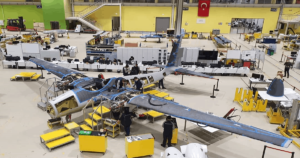
Turkish defense company Baykar has begun construction of a plant near Kyiv that will employ about 500 people and produce TB2 or TB3 drone models, the company’s CEO told Reuters on Tuesday.
The Turkish-made Bayraktar drones gained widespread popularity worldwide after the Ukrainian military began using them to counter Russian forces, destroying armored vehicles and artillery systems.
Baykar said it has signed export agreements for its TB2 drone with 30 countries. Among them are Ukraine, Ethiopia, Libya and Azerbaijan since 2018, according to the SIPRI think tank.
“Our plant is under construction… we need about 12 months to finish the construction, and then we will move on to the internal machinery, equipment and organizational structure,” Baykar CEO Haluk Bayraktar said on the sidelines of the Riyadh World Defense Exhibition.
“The plant in Ukraine is large, we plan to employ about 500 people,” he said. Bayraktar noted that the production capacity will be about 120 units per year, but said it is not yet clear whether production at the Ukrainian plant will focus on the TB2 or TB3 drone model.
Asked if security issues related to the ongoing conflict would be a concern for the plant, he said that plans are “fully progressing” and “nothing” can stop them.
As reported earlier, Ukraine’s Defense Ministry and Turkish company Baykar Makina signed an agreement to build a service center for the repair and maintenance of unmanned aerial vehicles in Ukraine.
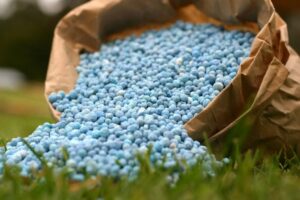
In 2023, the plants of Ostchem, a nitrogen holding company that unites Group DF’s nitrogen business, produced 2.1 million tons of mineral fertilizers, up 19.51% year-on-year.
According to a Group DF press release, Azot, the group’s Cherkasy-based plant, produced 1.56 million tons of mineral fertilizers in 2023, up 39.63% year-on-year, while Rivne Azot produced 528 thousand tons (-10.81%).
Urea, UAN and ammonium nitrate were the key fertilizers produced by Ostchem’s businesses, Group DF said.
According to the group, in 2023, it produced 835.9 thousand tons of ammonium nitrate, up 60.47% year-on-year, UAN – 572.7 thousand tons (+130%), and urea – 447.1 thousand tons (+145%). Production of UAN, a traditionally exported fertilizer produced by Rivne Azot, halved to 102 thousand tons.
“The fertilizer market is recovering, but imports of nitrogen fertilizers, which have increased significantly, do not allow us to fully utilize our plants. Despite the difficult situation in the agricultural sector, forced shutdowns of plants due to the hostilities, still high gas prices and abnormally high volumes of imports to Ukraine at dumping prices, Ostchem started to restore production in 2023. We fully met the demand from farmers even during peak periods,” said Sergiy Pavliuchuk, Production Director of Ostchem’s nitrogen business.
In 2023, Ostchem Holding doubled its production of UAN, the most promising fertilizer in Ukraine, to meet the demand. UAN was ranked second in terms of production, and its share in Ostchem’s product portfolio amounted to 27.3%, according to Group DF.
“It is no secret that we are negotiating with global players to develop several industrial sites. Our strategic plans include the construction of new workshops and enterprises. We are talking about investing in new, energy-efficient fertilizer production facilities and launching new products such as AdBlue, industrial gases, and petrochemicals,” added Pavliuchuk.
Commenting on the state of the domestic fertilizer market in Ukraine, Group DF said that the main feature of 2023 was the critical growth in imports imported at dumping prices. Compared to 2022, imports of mineral fertilizers to Ukraine increased 1.9 times, reaching 1.99 million tons. For example, urea imports increased 3.7 times over the year, reaching 501 thousand tons.
“A huge flow of cheap Belarusian and Russian fertilizers enters Ukraine through two channels: the first is from the former Soviet Union countries friendly to the aggressor. The second new channel is the re-export of Belarusian and Russian fertilizers from the EU. According to Eurostat, the total volume of nitrogen fertilizer imports to the EU increased by 34% in 2022-2023, while Russia accounted for about a third of these imports. Despite the sanctions and the existing embargo, a significant portion of these fertilizers is also entering Ukraine, slowly “killing” the Ukrainian producer and Ukrainian jobs,” emphasized Oleg Arestarkhov, Group DF’s Head of Corporate Communications.
In his opinion, the new trend is driven not only by Russia’s desire to expand its sales markets, but also by its strategic plan to make the EU and Ukraine dependent on its fertilizers.
Unable to compete with cheap imports, many EU companies are shutting down, and Ukrainian chemical companies such as Odesa Port and Sumykhimprom are also idle.
“The US and EU countries have already developed measures to ‘reduce dependence’ on fertilizers, grain and other food products from Russia. Formally, Ukraine has an embargo on imports of Russian and Belarusian fertilizers. However, fertilizers from these countries, as well as countries that buy cheap gas from Russia, continue to be supplied. As a result, our market is flooded with cheap imports, and Ukraine is facing critical dumping. Unfortunately, in 2023, we did not see any clear, tough economic actions by the authorities to protect the Ukrainian market and national producers. Fertilizer imports to the country are growing much faster than domestic production. Domestic production grew by about 20%, while imports grew by almost 100%,” stated Arestarkhov, adding that Ukraine needs to learn to better protect its interests.
Group DF consolidates Dmitry Firtash’s assets in the gas distribution, chemical, titanium and port industries, as well as in agriculture and media.
Ostchem is Group DF’s nitrogen holding company that unites the largest mineral fertilizer producers in Ukraine. It includes Rivne Azot, Cherkasy Azot, as well as Sievierodonetsk Azot and Stirol, which are not operating and are located in the occupied territories.
Cherkasy Azot PrJSC (Cherkasy, Ukraine) is one of the largest Ukrainian chemical companies and has been part of Group DF’s nitrogen business since 2011. The design production capacity of Cherkassy Azot is 962.7 thousand tons of ammonia, 970 thousand tons of ammonium nitrate, 891.6 thousand tons of urea, and 1 million tons of UAN per year.
Rivne Azot is one of the largest Ukrainian chemical companies in Western Ukraine and has been a part of Group DF’s Ostchem nitrogen holding since 2011. Since its acquisition, Firtash has invested over UAH 1.3 billion in Rivne Azot.
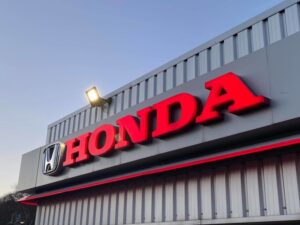
Japanese automaker Honda Motor Co. is considering the possibility of building an electric vehicle manufacturing plant in Canada, the Nikkei newspaper reports.
Investments in the project could reach 2 trillion yen ($14 billion).
Honda is considering several sites for the construction of the plant, including a site near the company’s existing facility in Ontario. The project may include the creation of facilities for the production of electric vehicle batteries, Nikkei notes.
The automaker intends to make a decision on the site for the construction of the Canadian plant by the end of 2024. The plant is expected to start operating in early 2028.
Honda is preparing to start production of electric vehicles and batteries in the US state of Ohio in 2026, and the Canadian plant will become the second largest Japanese company in North America.
This region accounts for about 40% of all Honda sales.
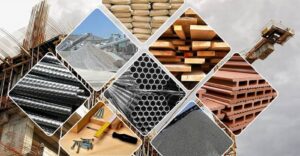
Prime Minister of Ukraine Denys Shmyhal says that German construction materials company Fixit has received investment insurance from the German government to build a second plant in Ukraine.
“We want German business to invest in Ukraine, to invest in recovery, and within the framework of the forum we are signing important documents… The building materials company Fixit will build a second plant in Ukraine and will receive investment insurance from the German government for this purpose, which will be signed here on the sidelines of the business conference,” Shmyhal said at a press conference at the sixth German-Ukrainian Economic Forum in Berlin on Tuesday.
According to the prime minister, Fixit will also receive a EUR12 million loan from the German bank KfW. “This is a very important and significant project,” he emphasized.
BUILD, CONSTRUCTION MATERIAL, Fixit, GERMANY, INSURANCE, PLANT
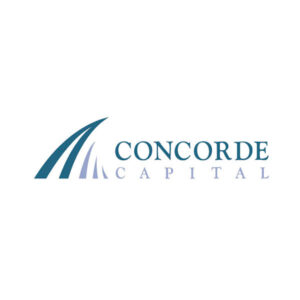
Investment company Concorde Capital, which acquired the plant “Kuznya na Rybalskogo” at the end of 2022, is developing the concept of a new development project on the territory of the plant, said the head of Concorde Capital Igor Mazepa in a commentary to the publication “Economic Pravda”.
According to Mazepa, the concept is being developed jointly with foreign architectural agencies. The businessman expects to start construction after the completion of legal proceedings around the bankruptcy of “Kuzna na Rybalskogo”.
He also indicated that Concorde Capital is considering participation in joint investment in the project.
“Our initial plan was to attract an investor to resell the project. Now the situation has changed, so we do not rule out participation in joint investment,” Mazepa said.
He did not disclose the amount of the deal to acquire the plant “Kuznya na Rybalskogo”, previously owned by Sergei Tihipko, but indicated that the deal included assets encumbered by debts of the owner company Ewins Limited.
As reported, in the fall of 2018, co-owner of the TAS Group, businessman Sergei Tihipko acquired from Petro Poroshenko, at that time the President of Ukraine, PJSC “Plant “Kuznya na Rybalskoe” (formerly – PJSC “Leninskaya Kuznya”) – one of the well-known in the market of shipbuilding enterprises of Ukraine.
Until mid-November 2018, the main shareholder of PJSC “ZNKIF “Prime Assets Capital” (formerly – “Petro Poroshenko Fund”, Kiev) was the main shareholder with a 73.9067% stake in the shipyard privatized in 1995, the second largest shareholder with a 20.1280% stake was PJSC “ZNKIF “VIK”, which concentrated the assets of MP Igor Kononenko.
In December 2022, the Economic Court of Kyiv opened a bankruptcy case against PJSC “Plant “Kuznya na Rybalskogo” (Kyiv).
As reported, the TAS group planned to realize on the unused territory of the plant the Lipki Island City Resort project in partnership with the developer City One Development.
According to the National Commission on Securities and Stock Market, as of the second quarter of 2023, the main shareholder of Zavod Kuznya na Rybalskoe is Ewins Limited (94.0347%).
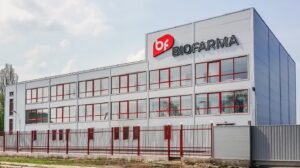
Biopharma is exploring the possibility of building a new plant by 2027, the company’s president Konstantin Efimenko said.
“We have already processed almost 300 thousand liters of plasma, the company’s turnover is slightly more than $100 million, and we need to triple the company’s turnover in four years. But it will not be possible to increase capacity further, we need to build a new plant. The new plant should be ready by 2027. To make it ready by 2027, we need to start tomorrow,” he said during the forum “Dialogues on Sustainability. How Business Develops in Times of War” forum in Kyiv on Thursday.
Efymenko also said that Biopharma plans to build a plant in Romania, but this is not a strategy to reduce dependence on Ukraine, but a way to “increase turnover.”
At the same time, Efimenko noted that attracting investments to Ukraine is currently hampered, in particular, by the issues of war risk insurance and the withdrawal of dividends.
“Biopharma is concerned about this issue, but not so much, because we are here with the foundation of the White Church, with the land. We are already here and will be here. But I am worried about other investors coming here, because the question will arise who needs our country,” he said.
As reported, Biopharma plans to triple the number of its plasma centers to 30 by 2027.